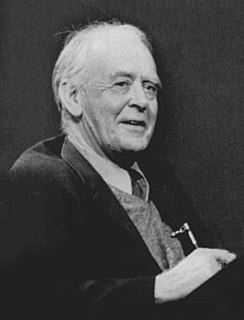A Quote by Frederick Lenz
The reason a person is in a particular state of mind is primarily because of attraction and aversion. Attraction and aversion cause us to format a mental or intellectual program.
Related Quotes
Genuine recollections almost invariably explain oneself to oneself. Suppose, for example, that you feel an instinctive aversion to some particular kind of wine. Try as you will, you can find no reason for it. Suppose when you explore a previous incarnation, you remember you died by a poisoned administered in a wine of that kind, your aversion is explained by the proverb: 'A burnt child dreads the fire.'
A short-lived fascination with another person may be exciting-I think we've all seen people aglow, in a state of being "in love with love"-but such an attraction is not sustainable over the long run. Paradoxically, human love is sanctified not in the height of attraction and enthusiasm, but in the everyday struggles of living with another person. It is not in romance but in routine that the possibilities for transformation are made manifest. And that requires commitment.































